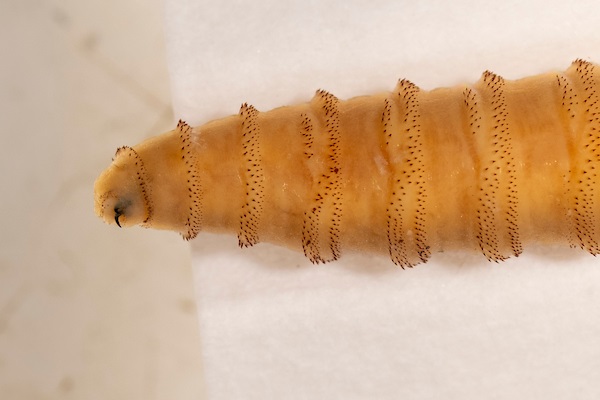September 22, 2025 – Digital fact sheet outlines monitoring and reporting strategies to protect wildlife
The Texas A&M AgriLife Extension Service has released a new fact sheet, “Wildlife Monitoring and Management for New World Screwworm,” to help Texans protect wildlife from the threat of this potentially devastating parasite.
Protect Texas wildlife
Learn how to spot and report New World screwworm in free-ranging wildlife. This new AgriLife Extension fact sheet gives Texans the steps and education they need to act quickly.
Developed by experts from AgriLife Extension, Texas A&M Natural Resources Institute and Texas Parks and Wildlife Department, the science-based resource provides rural and urban Texans with the information to monitor for and report possible infestations in free-ranging wildlife.
“Wildlife are a cherished natural resource and play vital roles in our ecosystem health,” said Marcus Blum, Ph.D., AgriLife Extension statewide wildlife specialist and assistant professor in the Texas A&M College of Agriculture and Life Sciences Department of Rangeland, Wildlife and Fisheries Management. “Texas is home to more than 100 mammal species that are at risk if the fly reestablishes itself here. This fact sheet was designed to help Texans play an important part in their protection.”
Blum, the publication’s primary author, said that in addition to iconic mammals such as white-tailed deer, mule deer and black bear, other warm-blooded wildlife, like birds, are also vulnerable.
Detection and treatment in wildlife pose unique challenges
Unlike livestock and domestic animals, most free-ranging wildlife are elusive and typically avoid human contact.

The Texas A&M AgriLife Extension Service has released a new fact sheet, “Wildlife Monitoring and Management for New World Screwworm,” to help Texans monitor and report potential cases of infestation in wildlife. (Michael Miller/Texas A&M AgriLife)
“Because it is difficult to monitor and treat free-ranging wildlife that become infested with New World screwworm larvae, large-scale mortalities are possible,” said Roel Lopez, Ph.D., Department of Rangeland, Wildlife and Fisheries Management department head and director of the Natural Resources Institute. “By equipping people with information on how they can monitor for and report possible cases in wildlife, we’re hoping to avoid that scenario should the pest emerge in Texas.”
Lopez is a co-author on the publication and has first-hand experience in tackling a New World screwworm outbreak in wildlife. He and Phillip Kaufman, Ph.D., head of the Texas A&M Department of Entomology, were on the frontlines of Florida’s 2016 New World screwworm eradication efforts.
About the New World screwworm
The New World screwworm, Cochliomyia hominivorax, is a parasitic fly that lays its eggs in wounds of living, warm-blooded animals, including humans. Once hatched, the fly larvae burrow into and feed on live flesh, causing extensive damage and even death.
Prior to its eradication from the southern U.S. in the 1960s, the fly caused significant negative impacts to livestock and wildlife.
The recent northward movement of the fly from Central America across Mexico has prompted a proactive, multiagency response to prepare for the possibility of reemergence in the U.S.
How to report suspected cases
Currently, there are no confirmed cases of New World screwworm in Texas. However, landowners and producers are encouraged to remain vigilant and report any suspected cases of infestation in an animal.
Anyone who finds fly larvae infesting a living animal should immediately report the sighting. For wildlife, contact your local Texas Parks and Wildlife Department biologist or call 512-389-4505. For livestock and other domestic animals, contact the Texas Animal Health Commission at 800-550-8242.
-30-






